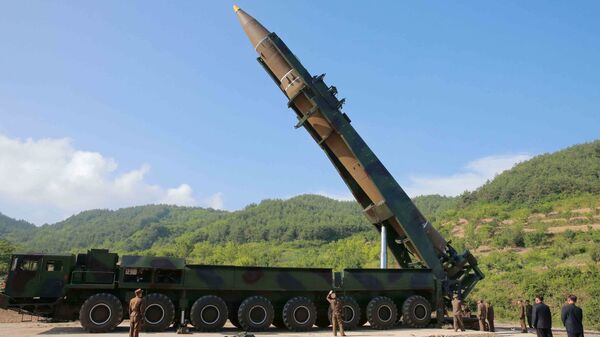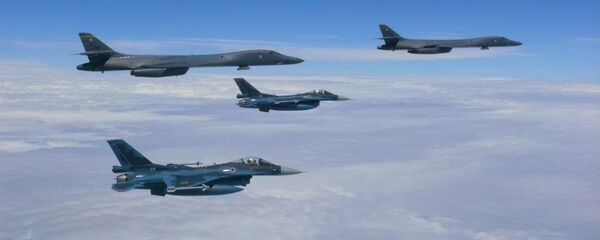Early Tuesday morning the Japanese government warned people in northern Japan to prepare for a potential incoming missile from North Korea.
Japanese national broadcaster NHK first reported that the projectile passed over Japan. This was confirmed by the South Korean Joint Chiefs of Staff, which said that the ballistic missile was fired from near Pyongyang, the North Korean capital, according to Yonhap News.
The Pentagon has also confirmed the launch.
The Japanese government says the missile passed over Japanese territory around 6:06 a.m. local time, and that its warning system was triggered, though no damage or injury has been reported. Tokyo did not attempt to shoot the missile down. Prime Minister Shinzo Abe said shortly after news of the launch came that utmost efforts would be made to protect the Japanese public.
The South Korean military later confirmed that the missile traveled for 90 minutes, covered 1,678 miles and reached a height of 341 miles before falling.
This move appears to be a considerable escalation, as previously it was considered provocative for North Korea to even land test projectiles in Japanese waters. North Korea last fired a projectile over Japan in 2009, in what the US and its regional allies called a ballistic missile test, but Pyongyang claimed was a satellite launch, according to Reuters.
Earlier this month when Abe met with US President Donald Trump, he said Tokyo would "maintain a high level of vigilance and our missile defense system under the strong Japan-US alliance." Japan's Defense Ministry has also recently considered introducing Aegis Ashore, a land-based version of the Aegis ballistic defense system, in anticipation of provocation from the North.
Japanese Defense Minister Itsunori Onodera also said this month that Japan can legally intercept North Korean missiles aimed at Guam if they pass over Japanese territory, and that Tokyo reserves the right to invoke collective self-defense to ensure Japan’s security. In March, Onodera said, "If bombers attacked us or warships bombarded us, we would fire back… striking a country lobbing missiles at us is no different."
Guam was at the center of a war of words between the US and the Democratic People's Republic of Korea (DPRK), as the North threatened "enveloping fire" on the US territory and Trump firing back with a promise of "fire and fury" to any such provocation. Notably a missile fired from the DPRK at Guam would have to pass over Japan.
Yoshihide Suga, Japan's Chief Cabinet Secretary told reporters "This ballistic missile launch appeared to fly over our territory. It is an unprecedented, serious and grave threat to our nation," in nationally televised remarks after the launch. He said his country would take appropriate steps to address the missile.
In response to the launch, a meeting of South Korea's National Security Council has been convened, with a similar meeting underway in Tokyo. South Korea's military has been put on increased combat alert over the latest launch, local media report.
On Monday Rodung Sinmun, newspaper of the ruling Workers' Part of Korea, reported that the Pyongyang was prepared to bury the US under water if Washington attacks, as the country celebrates the 68th anniversary of its Navy.






